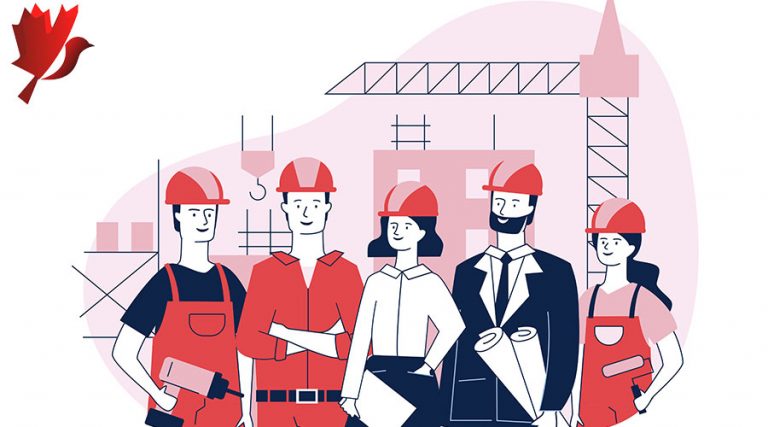
Intra-Company Transfer (ICT) Visa for Canada: Your Gateway to Seamless International Expansion
The Intra-Company Transfer (ICT) Visa offers a strategic opportunity for multinational companies to enhance their Canadian operations by transferring key employees across borders. Designed to streamline the relocation of vital personnel within the same corporate entity, this visa bypasses the need for a Labour Market Impact Assessment (LMIA), making it a compelling choice for businesses looking to leverage their global talent pool efficiently.
Why Choose the ICT Visa?
- Streamlined Process: Unlike other visa categories, the ICT Visa eliminates the LMIA requirement, significantly reducing administrative hurdles and processing time. This means your essential team members can start contributing to your Canadian operations sooner.
- Enhanced Expertise: The ICT Visa ensures that your Canadian branch benefits from the expertise, leadership, and specialized knowledge of your top talent. This seamless transfer of skills is crucial for maintaining your competitive edge and ensuring the success of your Canadian operations.
- Business Efficiency: By facilitating the transfer of executives, senior managers, and employees with specialized knowledge, the ICT Visa helps maintain operational continuity and drive business growth. This visa supports critical roles that are essential to your company’s strategic goals.
Qualifying for the ICT Visa: What You Need to Know
To take advantage of the ICT Visa, your company must meet key criteria:
- Legitimate and Active Business Operations: Your company must be actively engaged in meaningful business activities in both the home country and Canada. This ensures that both entities are operationally substantial and not merely existing as legal entities.
- Qualifying Relationship Between Entities: There must be a clear, formal relationship between your foreign company and the Canadian entity, such as a parent company, subsidiary, branch, or affiliate. This connection is crucial for the visa’s approval.
- Capacity to Support the Employee: Your Canadian entity must demonstrate its ability to support the incoming employee both financially and operationally. This requirement ensures that the transfer is essential to your business operations.
Essential Documentation for a Smooth Process
To support your ICT application, provide comprehensive documentation, including:
- Corporate Documents: Articles of incorporation, business licenses, and shareholder agreements for both entities.
- Financial Statements: Recent records showing the financial health and operational viability of your Canadian operations.
- Organizational Charts: Detailed diagrams of the structure and roles within both the foreign and Canadian entities.
- Proof of Physical Premises: Lease agreements or other documents proving the presence of a physical office in Canada.
- Evidence of Business Activity: Contracts, invoices, client lists, or marketing materials demonstrating active business operations.
Employee Requirements: Who Qualifies?
The ICT Visa covers three main categories of employees:
- Executives: Must hold top-tier positions with significant decision-making authority and have at least one year of executive employment with the company in the past three years.
- Senior Managerial Staff: Should oversee other managers or essential functions within the company, with at least one year of managerial experience with the company in the past three years.
- Employees with Specialized Knowledge: Must possess unique expertise critical to your company’s competitiveness. Proof of their specialized knowledge and its importance to your operations is required.
Processing Time: Plan Ahead for Success
Processing times for the ICT Visa generally range from 2 to 10 weeks. This can vary based on case specifics and current IRCC backlogs. Ensuring all documentation is complete and accurate will help avoid delays and expedite the process.
By choosing the ICT Visa, you’re not just transferring employees—you’re investing in the future of your Canadian operations. Prepare thoroughly and leverage this opportunity to drive your business forward with the expertise and leadership needed for success.

Students Can Work for Longer Hours
ILS Canada always comes up with the most updated news for the brighter future of Canadian immigrants. This time too we have come up with no less than any previous thrilling updates!
Something to make international students in Canada excited about since they ever before. Yes! Because Canadian foreign students are given a huge opportunity! Want to know how..?? They can serve off-campus over 20 hours of work per week authorized by the government of Canada active from November 15, 2022, to December 31, 2022. This esteemed initiative is taken to mitigate the labor shortage in Canada while considering the economic boom to its success horizon! Over 500,000 international students in Canada now will serve excessive hours by virtue of this work-hour extension strategy temporarily while pursuing their studies simultaneously.

Canada Launches New Immigration Stream for Health Workers.
Ottawa, May 23, 2024 – Immigration, Refugees and Citizenship Canada (IRCC)
To address significant labor shortages in the healthcare sector, Canada has introduced a new immigration stream tailored specifically for health workers. This initiative is designed to attract skilled healthcare professionals, thereby strengthening the country’s healthcare system and ensuring comprehensive care across Canadian communities.
Meeting Healthcare Demands
Minister of Immigration, Refugees, and Citizenship, the Honourable Marc Miller, highlighted the urgency of this new stream in tackling the critical demands of the healthcare sector. This dedicated pathway aims to simplify the immigration process for qualified healthcare professionals, enabling them to contribute effectively to the Canadian healthcare system.
Key Features of the New Stream.
The new immigration stream will focus on applicants with proven experience and qualifications in various healthcare fields, such as doctors, nurses, medical technicians, and other healthcare specialists. Emphasis will be placed on those who meet the high professional standards required for practice in Canada.
Integration with Express Entry.
Incorporating this new stream into the existing Express Entry system, category-based selection will be used to identify and invite eligible candidates. This method ensures that the most qualified healthcare professionals are prioritized, facilitating the filling of critical positions more efficiently.
Official Statement.
“Healthcare workers are crucial to the wellbeing of our communities. This new immigration stream demonstrates our commitment to bolstering the healthcare sector by attracting skilled professionals globally. By prioritizing health workers, we are making a significant stride in addressing labor shortages in this essential sector,” stated Minister Marc Miller.
Quick Facts.
– **Express Entry Integration**: The health worker stream will utilize the Express Entry system for expedited processing and candidate selection.
– **Targeted Occupations**: The focus will be on healthcare occupations, including doctors, nurses, and medical technicians.
– **Labor Market Impact**: This initiative aims to meet the urgent needs of Canada’s healthcare sector, which faces significant labor shortages.
– **Community Support**: By attracting skilled healthcare professionals, the stream aims to enhance healthcare services nationwide, especially in underserved areas.
Background.
The Canadian healthcare system has been strained by labor shortages, exacerbated by the COVID-19 pandemic and an aging population. This new immigration stream is part of a larger strategy to reinforce and expand the healthcare sector’s capacity and resilience.
This health worker stream signifies Canada’s continuous efforts to evolve its immigration policies to meet the nation’s changing needs. By welcoming skilled healthcare professionals, Canada aims to maintain a robust healthcare system capable of providing high-quality care to all its residents.

DO YOU KNOW?
Trades are among the five occupational sectors prioritized by Immigration, Refugees and Citizenship Canada (IRCC) through Express Entry category-based draws in 2023.
Earlier this year, the Canadian federal government introduced Express Entry category-based draws to address labor market gaps in five specific occupational categories.
These categories for 2023 include healthcare; science, technology, engineering, and mathematics (STEM); transport; trades; and agriculture/agri-food.
To support key employment sectors facing significant labor shortages, IRCC implemented category-based selection draws for Express Entry.
The inaugural category-based draw for Express Entry occurred on June 28, followed by four more draws focusing on these five occupational groups.
The key distinction between “standard” Express Entry draws and the new category-based draws lies in their approach to candidate ranking. While standard draws primarily use Comprehensive Ranking System (CRS) scores, the new draws prioritize candidates with specific work experience.
Why Trades Were Chosen as a Targeted Express Entry Category.
Employment and Social Development Canada (ESDC) highlights that “skilled trades are in high demand, rewarding, and essential to communities across Canada.” ESDC projects that over 256,000 new apprentices will be required over the next five years to meet the nationwide demand for skilled trades.
Additionally, a Government of Canada news release in August noted that “the Canadian Apprenticeship Forum estimates that over 122,000 new journeypersons will be needed to sustain workforce certification across Red Seal trades in Canada” between 2022 and 2026.
The Red Seal program develops standards and exams for trades, providing a national endorsement for tradespeople who pass the exam, indicating they meet the national standard.
These projections underscore the Canadian government’s emphasis on attracting immigrants with work experience in trades through category-based draws this year.
How Many Trades Workers Does Canada Need?
According to BuildForce Canada, the construction industry must recruit 299,200 new workers by 2032. This need is driven by the impending retirement of 20% of the 2022 labor force (245,100 workers).
The Canadian Occupational Projection System (COPS) operated by ESDC projects nearly 20,000 job openings for “trades helpers and laborers” between 2022 and 2031, due to factors like expansion demand, retirements, other replacement demands, and emigration.
Opportunities for Prospective Immigrants.
The 2022 year-end Express Entry report indicated that candidates with trades experience were among the top recipients of Invitations to Apply (ITAs) for permanent residence in Canada. Specifically, cooks were among the top 15 primary occupations of ITA recipients in 2022, continuing a trend from 2021.
Ahmed Hussen, former Minister of Housing and Diversity and Inclusion, highlighted the significant employment opportunities for skilled immigrants in the trades, emphasizing their role in addressing Canada’s housing crisis.
History of Trades Express Entry Draws to Date.
IRCC has conducted one round of invitations specifically for candidates with trades experience. On August 3, 1,500 candidates with trades experience were invited to apply for permanent residence, with a minimum CRS score of 388.
Data obtained by the Globe and Mail from IRCC indicated that category-based draws for trades occupations would constitute “three to four” percent of all ITAs issued under Express Entry for the remainder of the year.

Canada Strengthens Efforts to Attract French-Speaking Skilled Newcomers.
Ottawa, February 9, 2024 – Immigration, Refugees and Citizenship Canada (IRCC).
In a bid to bolster national identity, stimulate economic growth, and address pressing labour shortages, Canada is intensifying its initiatives to welcome French-speaking skilled workers outside Quebec. The Honorable Marc Miller, Minister of Immigration, Refugees, and Citizenship, announced that the 2024 Express Entry rounds have commenced. These rounds target candidates with specific work experience or a high proficiency in French, inviting them to apply for permanent residence
Enhancing Francophone Communities. In a bid to bolster national identity, stimulate economic growth, and address pressing labour shortages, Canada is intensifying its initiatives to welcome French-speaking skilled workers outside Quebec. The Honorable Marc Miller, Minister of Immigration, Refugees, and Citizenship, announced that the 2024 Express Entry rounds have commenced. These rounds target candidates with specific work experience or a high proficiency in French, inviting them to apply for permanent residence.
Special Focus on French Proficiency. A significant aspect of the Implementation Plan involves prioritizing candidates with strong French language skills in the Express Entry system. This focus underscores the Canadian government’s commitment to supporting and enhancing the economic vitality of Francophone communities outside Quebec.
Minister’s Statement. “Francophone immigration plays a crucial role in strengthening our national identity and fueling the economic growth of Francophone minority communities outside Quebec. As we continue to face critical labour shortages in key sectors like health care, transportation, and home building, talented newcomers are critical for our economy because they support local businesses and communities. The Express Entry system ensures that Canada has the skilled workers it needs to grow and succeed, while highlighting our commitment to supporting the vitality and restoring the demographic weight of Francophone minority communities,” said the Honourable Marc Miller, Minister of Immigration, Refugees, and Citizenship.
Quick Facts.
- The selected categories for Express Entry are based on labour market data and projections, along with input from provincial and territorial partners and stakeholders across Canada.
- Projections from 2022 to 2031, informed by consultations in winter 2022 and summer 2023, guide the 2023 categories, which remain relevant.
- Immigration is responsible for nearly 100% of Canada’s labour force growth, addressing shortages in key sectors.
- Between 2018 and 2023, the Federal Skilled Worker Program and the Canadian Experience Class accounted for approximately 39% of French-speaking immigrant admissions outside Quebec. Canada’s concerted efforts to attract French-speaking skilled workers underscore a broader strategy to enrich Francophone communities, support economic development, and address labour market needs across the country
